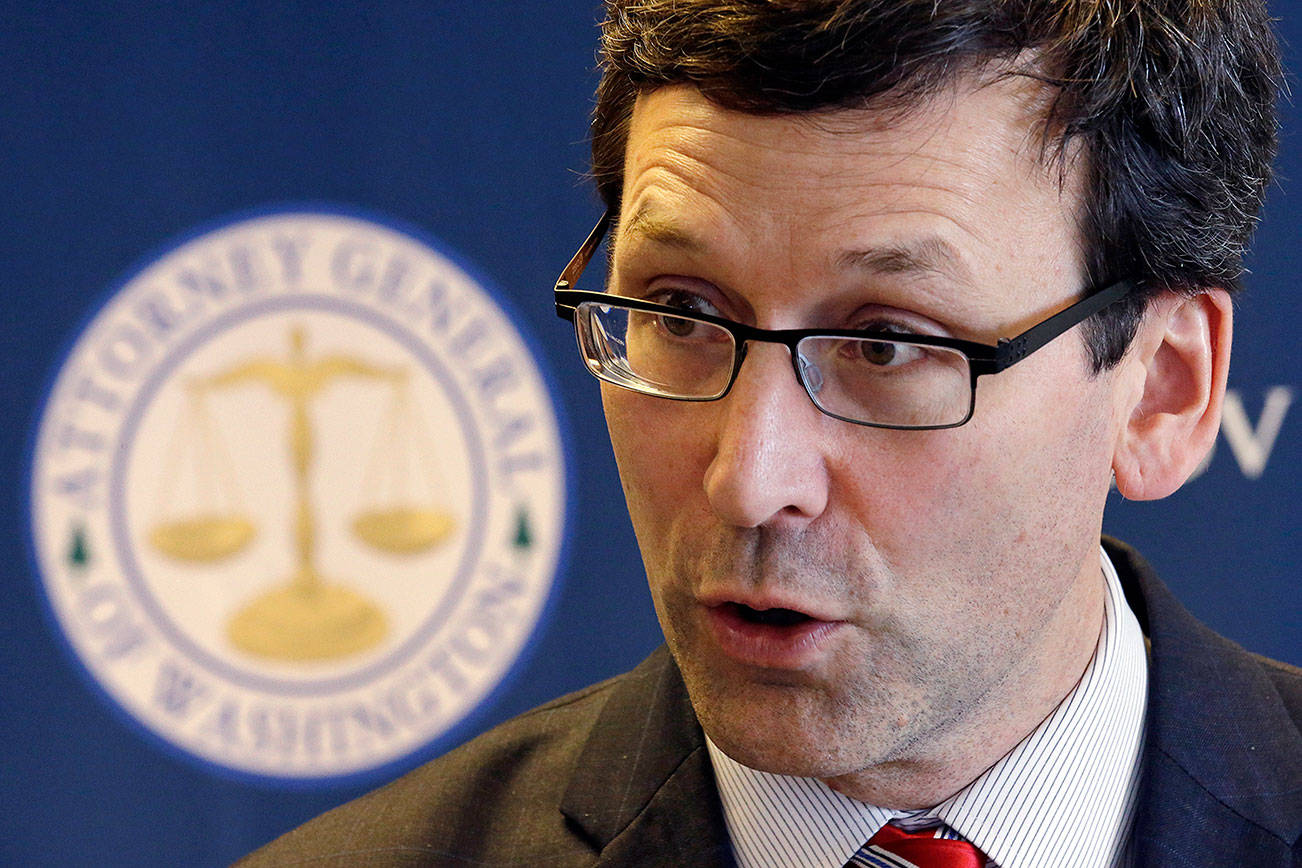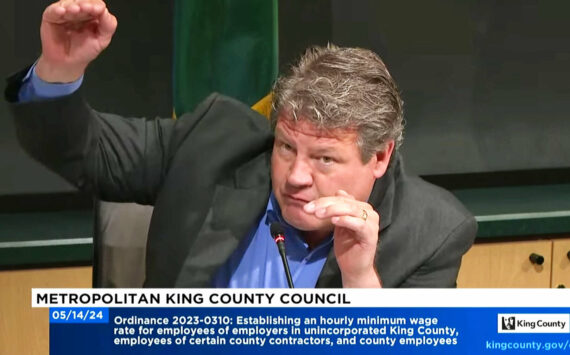State Attorney General Bob Ferguson announced Thursday that the lawsuit his team launched in late January against the Trump administration is still very much alive.
Although the second version of the executive order temporarily barring travelers from half a dozen Muslim-majority countries addresses some of the constitutional concerns raised by Ferguson’s suit —revisions that Ferguson has said marked a victory for his office— fundamental concerns remain.
The new order still causes “harm to the people of the state of Washington,” Ferguson said at a press conference Thursday. “It’s fair to say that the revised executive order does narrow the scope of who is impacted by it.” Iraq was removed from the original list of seven countries, for instance, and people with visas and green cards will now be able to travel. But “that it’s been narrowed does not mean it’s cured its constitutional problems.”
Washington residents will be harmed if their family members aren’t able to visit them, for instance; state universities and colleges that are trying to attract students from the affected countries won’t be able to do so; and employers that rely on workers from the affected countries will see an impact, too. Even if it’s a smaller pool of individuals than it was the first time around, Ferguson said, “This is effectively a Muslim ban.”
Ferguson’s team filed a motion Thursday with federal judge James L. Robart to confirm that the injunction he issued on February 3, halting the original travel ban’s implementation pending further legal review, will be upheld. The motion alleges that the second executive order still violates the Equal Protection Clause and the Establishment Clause, which prevents discrimination based on religion.
Early next week, the team plans file an amended complaint, taking into account the changes in the revised order, and any new information that has come to light since.
Other states may be following suit; Hawaii Attorney General Doug Chin launched his own lawsuit against the new order this week, for example. Ferguson says he’s been in contact with many other attorneys general about this in recent weeks and has encouraged everyone to do what’s best for his or her own state. 18 states filed amicus briefs in support of Ferguson’s original lawsuit.
When asked what he’d do if there were unintended negative consequences for the state of Washington due to this lawsuit — a loss of federal funding, say — Ferguson reiterated many of the points he’s made so far on this issue.
“The President is acting in a way that is unconsitutional and harmful and it is my duty and my responsibility to act,” he said. “We’re not going to be bullied by the actions of the federal government.” And everyone, including the President, should be held to the rule of law. “You can’t Tweet your way out of it.”








